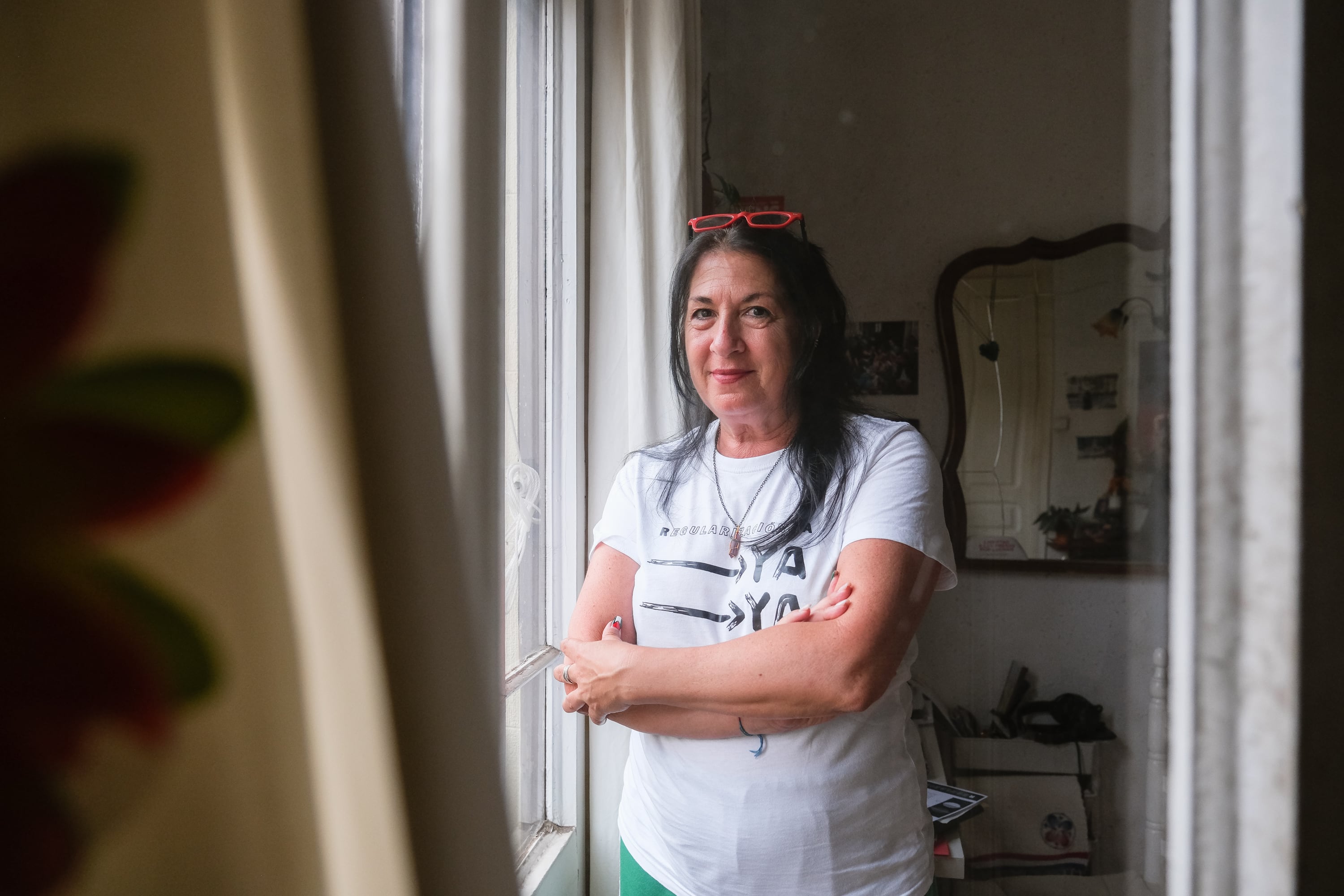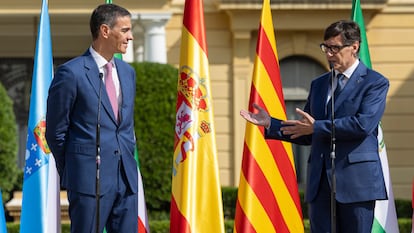Victoria Columba, activist for regularization: « Immigrants are here to change the rules of the game » | Spain

Victoria Columba (57 years, Rosario, Argentina) arrived in Spain 23 years ago and has dedicated at least the last 15 to defend the rights of migrants. Based in Barcelona, it is one of the most outstanding voices by The extraordinary regularization of immigrants that are now discussed in the halls of Congress and that will decide the fate of half a million foreigners in Spain. As spokesman for the regularization platform, it defends the process that managed to achieve more than 600,000 signatures and turn it into a popular legislative initiative (ILP). The conversations have now unbridled that the PSOE has decided to support it after the most recent reform of the Foreigner Law will leave tens of thousands of people out. Columba demands that in the negotiations between the parliamentary groups the original objective of this bet is not forgotten: reach the most vulnerable, who have no other option to get out of hiding.
Ask: What feeling do they have about the future of the ILP in Congress after meeting with parliamentary groups, including the PSOE?
Answer: It is the first time that the PSOE is incorporated into the ILP support group, because for a long time he did not support it, although now he says he has done so. Minister Elma Saiz said that the ILP was not going to leave, which she already reached with the reform (to the foreigner law). The PSOE said that the small print of the agreement is not yet because first it has to go through the period of presentation, in which the parties behind closed dock discuss the amendments. What is clear is that the rights ask The issue of employment contract as a conditionthat for us it is unfeasible and is a red line because precisely this ILP goes to that bag of people who does not enter there. In the presentations you will see if there really is a will of the PNV and Junts to support this initiative. We see that the PP has gone more towards the extreme right.
P. He also met with the Secretary of State for Migration. What did she say?
R. That we must continue to insist with the approval of the ILP, which they do not raise another way. Also that a small print is not yet written because they are collecting the demands of the organizations that we are part of the platform and that that will also have to negotiate with PNV and Junts. We propose that on December 31, 2024 as a cutting date it is not viable because between which it is voted and launched, this will leave out many people who have arrived later. For us it has to be when it is published in the BOE or, being generous, On May 20, which is when the reform came into force.
P. You point out as high as possible. Don’t you fear that it can be counterproductive to get it forward?
R. If they (some parliamentary groups) go to the maximum, we have gestated this citizen mobilization process we have every right to demand. We start this process because the government did not want to make extraordinary regularization. We had to go out to collect these 700,000 signatures. It would only be missing that we had to negotiate with them nothing. Entrepreneurs are asking for workers and have had to say goodbye to many people who were working with the asylum application in process (by the new Foreigner Regulation). Here what we lack is the strength of the unions, who have never supported the ILP and that they will not support it either now.
P. What opinion is that this is now accelerating in large part because it is the businessman who is asking for it?
R. The extraordinary regularizations that have been made in Spain have always been linked to the labor market. That is why we have had to change the mercantilist and utilitarian look, for a human rights look.
P. And why could this regularization change your life to that half million people?
R. They are people who are already working, but they do it in precariousness, who are not being able to contribute for their future, for their retirements. The women of Latin America not only come here to sustain the welfare state of the Spaniards, or to clean and take care of others. They put the responsibility of coming and having children and then not being able to register them in a decent house or send them to school.
P. What specific profiles are we talking about that if it is not this time, they will not be regularized?
R. Latin American women working and care, who are the majority. The migratory flow that enters the south and comes from Africa is just 18% of migration that arrives irregularly. The majority are Latin American women who arrive through airports such as tourists and who are staying, or with work promises, or those who arrive with these circular migration agreements that the government exhibits, but who do nothing but precarize employment and leave people in a situation of vulnerability because one does not eat six or nine months a year, eat all year and have a family all year. Also internal that cannot be registered. Or undocumented people who in their countries of origin cannot access their documents. We are talking about regularizing the victims of greenhouse fires where the European garden is nourished.
P. Why if in the last five years the economic growth of Spain has been pushed in large part by the immigrants with such impunity the anti -immigration discourse?
R. The global scenario allows it. Building the enemy about the most vulnerabilized is easier for fascism. It is easy to build hate discourse because that supports an economy of inequality. The key is to combat this hate speech with rights policies and a different narrative. The ILP of regularization is the clear example that it is a historical milestone, that migrants have organized ourselves and have achieved the support of the Church, from the left and that we have thrown forward this process that has made a blockade of the outraged right. We have to deconstruct the language: we are neighbors and neighbors and we have to contemplate this way. We are not here just to demand a dignified life, we are here to change the rules of the game.








